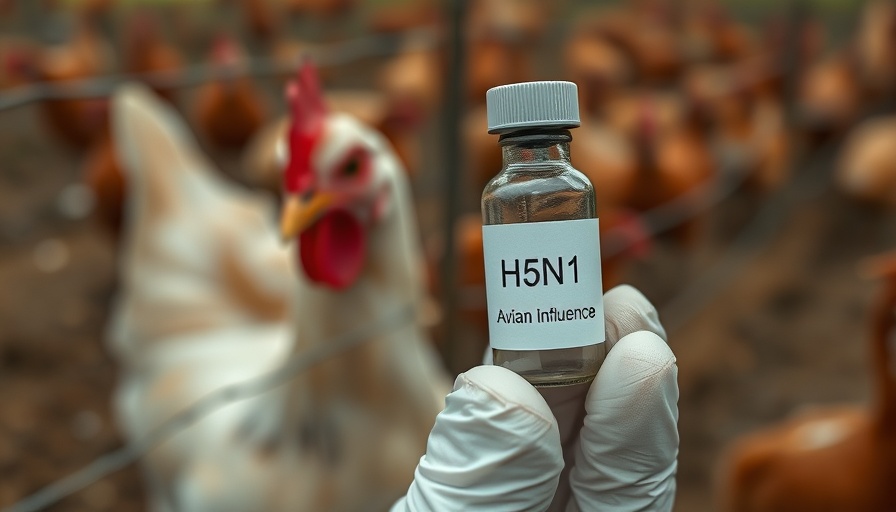
Why Many Americans Are Hes hesitant to Accept the Bird Flu Vaccine
A recent study reveals a disturbing trend in public health attitudes as a significant 61.4% of Americans express reluctance or uncertainty about receiving the bird flu vaccine. This widespread hesitance raises alarms as cases of highly pathogenic avian influenza (HPAI) continue to emerge, highlighting a serious disconnect between expert warnings and public response.
The Knowledge Gap: Understanding Bird Flu Risks
Despite 64.4% of those surveyed being aware of bird flu, only a minority—26.1%—understand its potential to spread to humans. Furthermore, mere awareness of the H5N1 strain's detection in cattle is even lower at 18.8%. This lack of knowledge is concerning, especially with confirmed human cases increasing, especially among individuals with direct exposure to infected animals.
Political Influence on Public Health Reactions
The research reveals a stark political divide in attitudes toward vaccination and dietary changes. Democrats are more open to both preventive measures, whereas Republicans exhibit a strong resistance. In fact, the study notes that Republicans are 3.5 times more resistant to the vaccine and 1.56 times more likely to oppose dietary changes. This divergence underscores how political identity can significantly impact public health initiatives.
The Importance of Food Safety Practices
Another troubling finding is the public's limited understanding of food safety practices essential for minimizing the risk of infection. With recent incidents of H5N1-contaminated products, it is critical for individuals to be educated on best practices, such as recognizing the safety of pasteurized milk over raw milk and the importance of cooking meat thoroughly.
Conclusion: Bridging the Gap for Safer Health Outcomes
To combat public hesitance towards the bird flu vaccine and enhance food safety awareness, clear communication and educational initiatives are paramount. Policymakers and health experts must work together to ensure factual, unbiased information reaches the public, addressing misconceptions and strengthening community resilience against future health threats.
 Add Row
Add Row  Add
Add 




Write A Comment